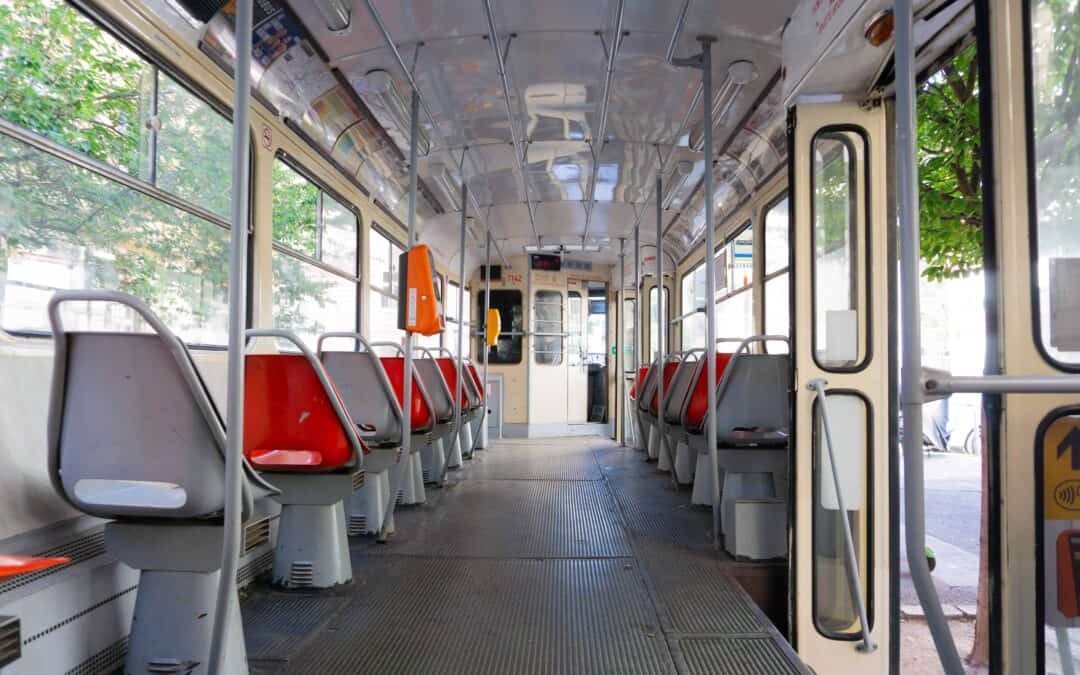This month, we explore the vital need of transportation. One’s access to transportation has implications for several areas of their life – from employment to healthcare. Keep reading to learn what research is telling us about the influence and impact of transportation on poverty in our communities.
Transportation
The Problem
Transportation is essential for our neighbors to get to work, school, the store, the clinic, and, in short, to live a full life. Transportation is of particular concern for workers. Most workers’ employment situation requires reliable transportation due to work hours or location. Considering that 95 percent of workers in the U.S. do not have reliable access to public transportation, this often means that already income-constrained workers must add an estimated $439 per month to afford a personal vehicle. With 36 percent of individuals in Tarrant County earning at or below $1,860 a month, transportation is a major strain on an already stretched budget. This cost of transportation – the cost of simply entering the labor market – could be even greater considering that more than 10 million of our neighbors in the United States commute at least two hours roundtrip, if not more. (Bureau of Labor Statistics, 2017; United Ways of Texas, 2020; City of Fort Worth, 2018; Van Ommeren & Gutierrez-i–Puigaranu, 2011; Crabtree, 2010)
In addition to the costs of vehicle-ownership, insurance costs are simply more expensive for low-income workers. Income, education level, credit history, and occupation all factor into insurance premiums. (Agwin, Larson, Krichner, & Mattu, 2017)
Why It’s Important
As with other resource needs, when transportation costs are shouldered by an already income-constrained household, people often forgo other essential needs such as food, healthcare, or childcare.
Another strategy people might use to secure transportation is to opt for more affordable vehicles; however, these vehicles are often less reliable and safe. This strategy has been linked to higher rates of tardiness and absenteeism at work, missed healthcare appointments, and limited access to healthy food and quality childcare options. These are obvious risks to one’s employment, health, and future generations’ education and wellbeing. (Center for Transit Oriented Development, 2012; Dawkins, Jeon, & Pendall, 2015; Criden, 2008)
Our income-constrained neighbors also have higher incidences of penalties as a result of being unable to cover the many incidental costs of car ownership: insurance, registration, tickets, etc. Car-owners are more likely to face vehicle impounding, license suspension, negative credit ratings from late car note payments, and even deportation and incarceration for minor traffic/vehicle violations. These risks have been linked to disruptions to individuals’ lives – their ability to reliably and consistently get to work, school, or maintain good credit and emergency savings . (Lawyers Committee for Civil Rights, 2015; PBS NewsHour, 2014; Eaglin, 2015; Wiltz, 2015)
How We Help
CCFW has a team of Resource Specialists who are the agency’s in-house experts on community resources and help our programs guide clients in the right direction. We have a Resource Specialist specifically dedicated to transportation.
Resource Specialists are available to all CCFW program staff, and they assist via one-on-one consultations, trainings and education on resource connection, and access to the preferred resource partners developed by the Resource Specialists. This multifaceted strategy helps CCFW program staff more strategically and effectively leverage community resources for their clients.
In addition, our own CCFW Transportation Services provide individuals in our community an affordable, reliable option for getting to work, medical appointments, and other essential trips.
Interested in more spotlights like this one? Get them in your inbox via our Research Spotlight Newsletter! Sign up below.
Our Research and Evaluation team works diligently to stay on top of current poverty-related research, as well as evaluate our own agency’s impact. This newsletter and blog series is an initiative to share our learnings and keep our supporters in-the-know.
References
Agwin, J., Larson, J., Krichner, L., & Mattu, S. (2017). Car Insurance Companies Charge Higher Rates in some Minority Neighborhoods. Consumer Reports. Retrieved from https://www.consumerreports.org/consumer-protection/car-insurance-companies-charge-higher-rates-in-some-minority-neighborhoods/.
Bureau of Labor Statistics. (2017). Consumer expenditure survey. Retrieved from https://www.bls.gov/cex/.
Bureau of Labor Statistics. (2017). Occupational employment and wage estimates. Retrieved from https://www.bls.gov/oes/current/oes_nat.htm#41-0000.
Center for Transit Oriented Development. (2012). Families and transit-oriented development. Retrieved from http://ctod.org/pdfs/tod205.pdf.
City of Fort Worth. (2019). Community Needs Assessment. https://www.fortworthtexas.gov/files/assets/public/neighborhoods/documents/cap-community-needs-assessment.pdf.
Crabtree, S. (2010). Well-being Lower Among Workers with Long Commutes. Gallup-Healthways Well-Being Index. Retrieved from http://www.gallup.com/poll/142142/wellbeing-lower-amongworkers-long-commutes.aspx.
Dawkins, C., Jeon, J., S., & Pendall, R. (2015). Transportation access, rental vouchers, and neighborhood satisfaction: Evidence from the moving to opportunity experiment. Housing Policy Debate, 497-530. Retrieved from http://www.tandfonline.com/doi/abs/10.1080/10511482.2014.986662?journalCode=rhpd20.
Eaglin, J. (2015). Driver’s license suspension perpetuates the challenges of criminal justice debt. Brennan Center for Justice. Retrieved from https://www.brennancenter.org/blog/drivers-license-suspensions-perpetuate-challenges-criminal-justice-debt.
Lawyers Committee for Civil Rights. (2015). Not Just a Ferguson Problem: How Traffic Courts Drive Inequality in California. Retrieved from http://www.lccr.com/wp-content/uploads/Not-Just-a-Ferguson-Problem-How-Traffic-Courts-Drive-Inequality-in-California-4.20.15.pdf.
PBS NewsHour. (2014). Without Funds to Pay Fines, Minor Incidents can mean Jail Time. Retrieved from https://www.pbs.org/newshour/show/without-funds-pay-fines-minor-incidents-can-mean-jail.
United Ways of Texas. (2020). ALICE: A Financial Hardship Study. Retrieved from https://unitedforalice.org/all-reports.
Van Ommeren, J., & Guitierrez-i-Puigaranau, E. (2011). Are workers with a long commute less productive? An empirical analysis of absenteeism. Regional Science Economics, 41(1), 1-8. Retrieved from http://www.sciencedirect.com/science/article/pii/S0166046210000633.
Wiltz, T. (2015). Why uninsured drivers cost us over $2.6 billion a year. The Fiscal Times. Retrieved from http://www.thefiscaltimes.com/2015/02/20/Why-Uninsured-Drivers-Cost-Us-Over-26-Billion-Year.

